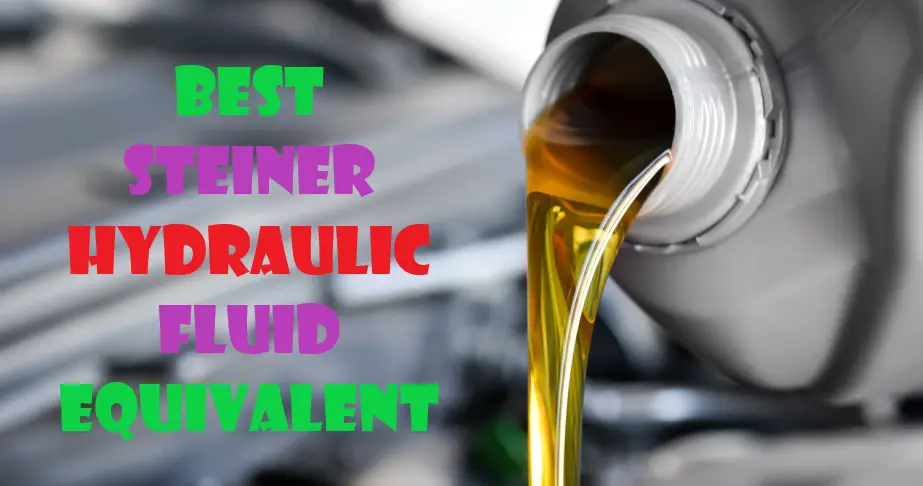Hydraulic fluids are the lifeblood of hydraulic systems, powering countless machines and equipment across various industries.
Among the array of hydraulic fluids available, Steiner hydraulic fluid has earned its reputation for exceptional performance and reliability.
However, there may be instances where finding the exact Steiner hydraulic fluid becomes a challenge.
In such situations, discovering an equivalent substitute becomes paramount.
A Quick Word of Advice
Steiner hydraulic fluid is specifically formulated and extensively tested to meet the unique requirements of their hydraulic systems.
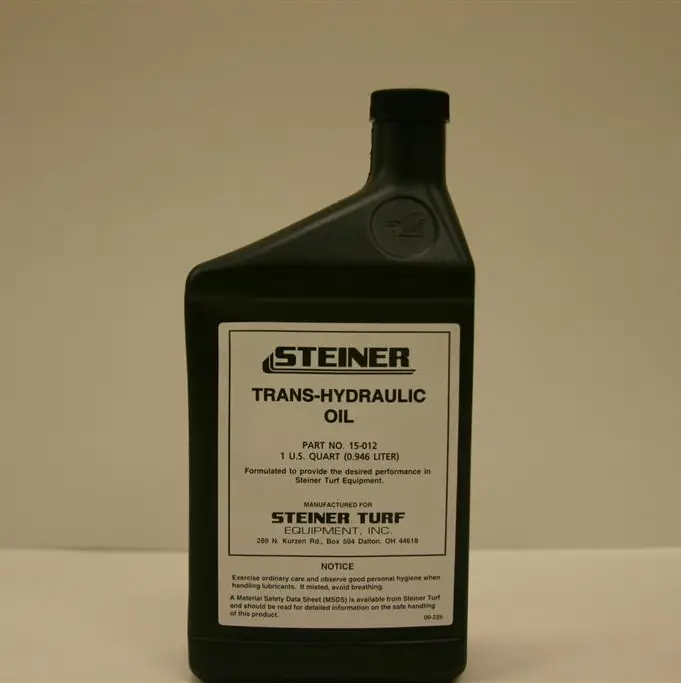
Using the recommended Steiner hydraulic fluid is crucial for optimal performance, system compatibility, and warranty compliance.
It’s recommended to only seek a suitable alternative if the manufacturer-recommended fluid isn’t available.
Best Steiner Hydraulic Fluid Equivalent
When seeking a Steiner hydraulic fluid equivalent, one of the highly recommended options is Amsoil Synthetic Tractor Hydraulic/Transmission Oil SAE 5W-30.
This synthetic hydraulic fluid offers exceptional performance and compatibility, which makes it an ideal substitute.
It stands as a top choice for those seeking a reliable and compatible replacement.
Related: Tireject vs. Slime: Which is the Better Tire Sealant?
Why Amsoil Hydraulic Fluid is a Good Alternative
Let’s explore why it stands out as the best equivalent.
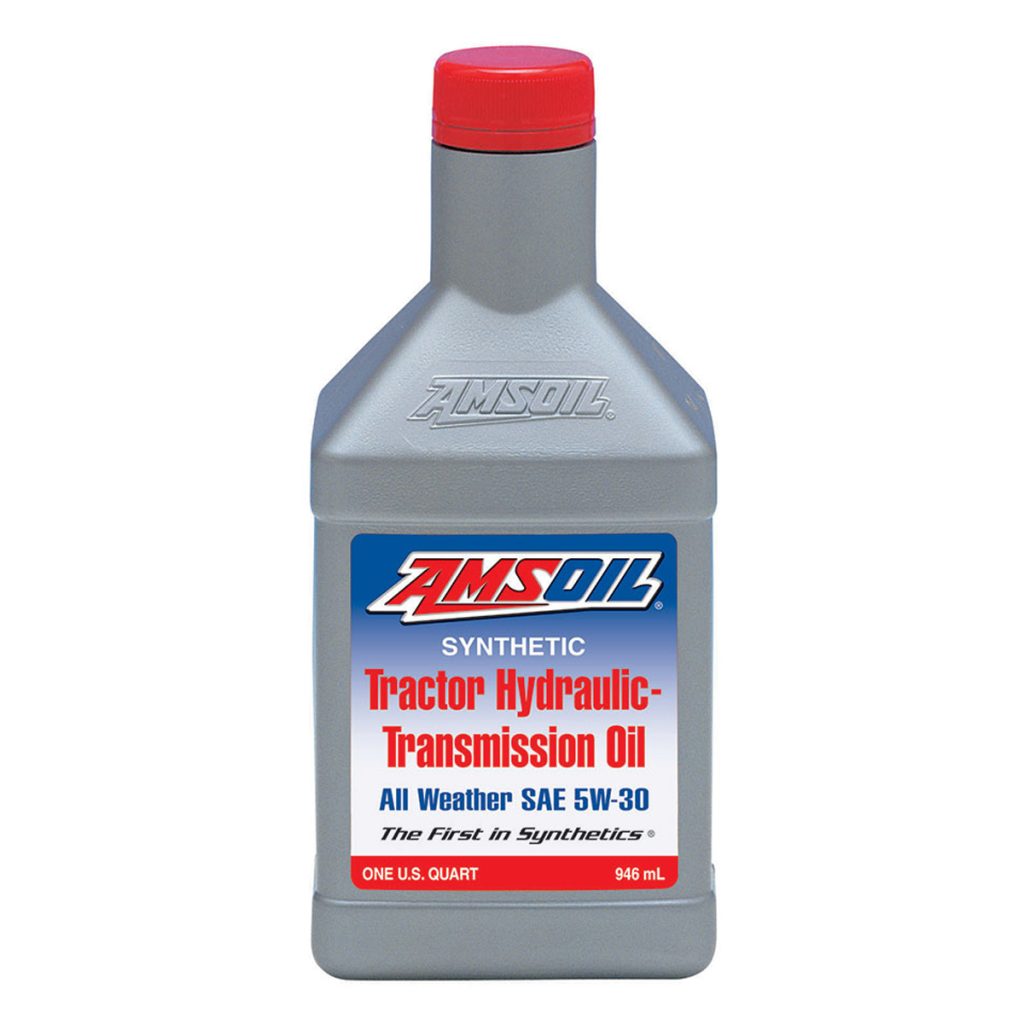
Performance and Protection
Amsoil Synthetic Tractor Hydraulic/Transmission Oil is specifically formulated to provide excellent wear protection, thermal stability, and oxidative resistance.
It maintains consistent viscosity across a wide temperature range, which ensures optimal performance and component protection in both hydraulic and transmission systems.
Multi-Purpose Application
Similar to Steiner hydraulic fluid, Amsoil Synthetic Oil is a multi-purpose fluid suitable for use in both hydraulic and transmission systems.
It’s designed to meet the unique demands of agricultural and heavy-duty equipment. It’s versatile and convenient for various applications.
Superior Lubrication
This synthetic hydraulic oil offers exceptional lubrication properties that minimize friction and wear in hydraulic pumps, motors, valves, and transmission components.
It forms a protective film on metal surfaces. This helps to reduce the risk of premature wear and extend the lifespan of critical parts.
Advanced Additive Package
Amsoil synthetic oil incorporates a robust additive package that provides excellent anti-wear, anti-foam, and corrosion protection. These additives contribute to smoother operation, reduced downtime, and enhanced equipment durability.
Environmental Considerations
Amsoil synthetic trans-hydraulic oil is engineered to be environmentally friendly, featuring a low toxicity profile and a biodegradable formulation.
It meets or exceeds industry standards for eco-friendly hydraulic fluids and is a suitable choice for environmentally sensitive applications.
Compatibility
This synthetic oil is designed to be compatible with most common seal and material types found in hydraulic and transmission systems.
It can be used as a drop-in replacement for Steiner hydraulic fluid without any adverse effects on system performance or integrity.
Industry Recognition
Amsoil, as a reputable lubricant manufacturer, has a long-standing track record of producing high-quality synthetic oils. Their products are widely trusted and recognized in the industry for their performance, reliability, and adherence to stringent specifications.
Related: 3 Best Types of Lawn Mower Engines
5 Key Steps to Take for a Successful Transitioning to a Substitute
Transitioning to a substitute hydraulic fluid involves following best practices to ensure a smooth and successful switch.
Here are fundamental steps to consider.
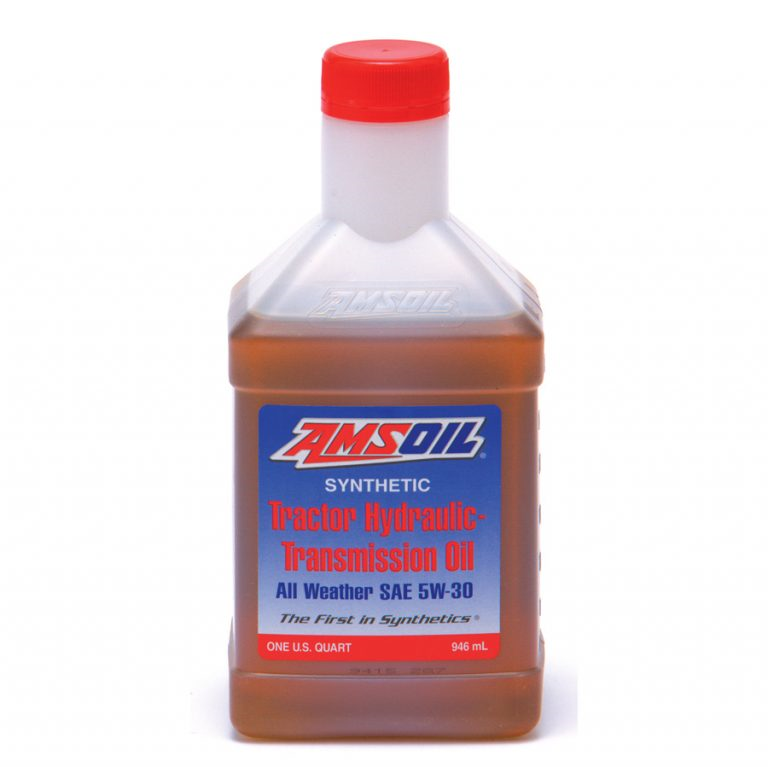
1. Thoroughly Clean the Hydraulic System
Before introducing the substitute fluid, it’s important to clean the hydraulic system and components to remove any traces of the previous Steiner hydraulic fluid.
Flushing the system with a suitable flushing agent can help remove residual fluid and contaminants effectively.
This step promotes better compatibility and performance with the new substitute.
2. Follow Manufacturer Guidelines
Consult the manufacturer’s guidelines or recommendations for transitioning to the substitute fluid.
These guidelines may include specific procedures for system flushing, filter replacement, and compatibility checks.
Adhering to these instructions ensures proper integration of the substitute fluid and reduces the risk of adverse effects on system components.
3. System Flush and Filter Replacement
Perform a thorough system flush to remove any remaining Steiner hydraulic fluid. This step helps prevent cross-contamination and ensures that the substitute fluid operates optimally.
Replace hydraulic filters as recommended by the manufacturer to prevent residual fluid from circulating in the system and compromising performance.
4. Compatibility Checks
Before introducing the substitute fluid, conduct compatibility checks to ensure that it’s compatible with the materials used in the hydraulic system, such as seals, hoses, and elastomers.
Incompatible fluids can cause degradation, leaks, or damage to system components.
Consult with experts or the substitute fluid manufacturer to verify compatibility and address any concerns.
5. Monitoring and Maintenance
Monitor the hydraulic system closely during the initial period after the transition to the substitute fluid.
Pay attention to system performance, temperature, and any signs of issues such as leaks or abnormal noise.
Perform regular maintenance, including fluid analysis, filter replacements, and system inspections to ensure that the substitute fluid is performing as expected and maintain optimal system performance.
Related: Sutech Stealth 33 Review: Read This Before You Buy
Factors to Consider When Seeking an Equivalent
Consider the following factors when seeking a Steiner hydraulic fluid equivalent to ensure the substitute meets the specific requirements of your hydraulic system.
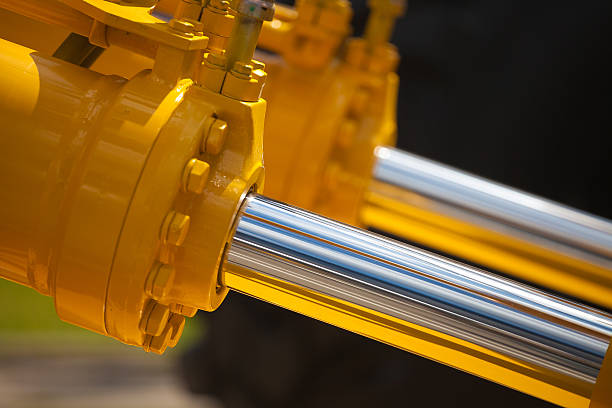
System Requirements
Understand the operational parameters of your hydraulic system.
Consider factors such as operating temperatures, pressure levels, and flow rates.
Different hydraulic systems have different demands, and the substitute fluid should be capable of performing effectively under those conditions.
Component Materials
Evaluate the materials used in your hydraulic system, including seals, hoses, and elastomers.
Compatibility with these materials is crucial to prevent degradation, leaks, or other issues.
Ensure that the substitute fluid is compatible with the specific materials used in your system to maintain optimal performance and longevity.
Incompatible fluids can cause swelling, degradation, or leaks, leading to potential system failure.
Verify compatibility with the manufacturer of the substitute fluid or seek expert advice if necessary.
Environmental Considerations
Take into account the environmental conditions in which your hydraulic system operates.
If your equipment operates in extreme temperatures, harsh weather conditions, or environments with high levels of contaminants or moisture, choose a substitute fluid that offers the necessary protection and performance characteristics to withstand those conditions.
Performance Characteristics
Analyze the performance characteristics of the substitute fluid to ensure that it meets the requirements of your hydraulic system.
Factors such as viscosity, oxidation stability, shear stability, and load-carrying capacity should be considered.
The substitute fluid should offer similar or superior performance to the original Steiner hydraulic fluid to maintain optimal system operation.
Manufacturer Recommendations
Consult the equipment manufacturer or refer to the equipment documentation for any specific recommendations or requirements regarding substitute fluids.
The manufacturer’s guidelines are valuable in identifying suitable alternatives and ensuring compatibility and optimal performance.
Related
- Best Commercial Lawn Mower Brands
- Ariens Vs Husqvarna Zero Turn Mowers (Best Comparison)
- Top 3 Types of Lawn Mower Engines
- Best Mowers for 7 Acre
- Tireject vs. Slime: Which is the Better Tire Sealant?
- Dump Trailer Hydraulic Fluid: Everything You Need to Know
